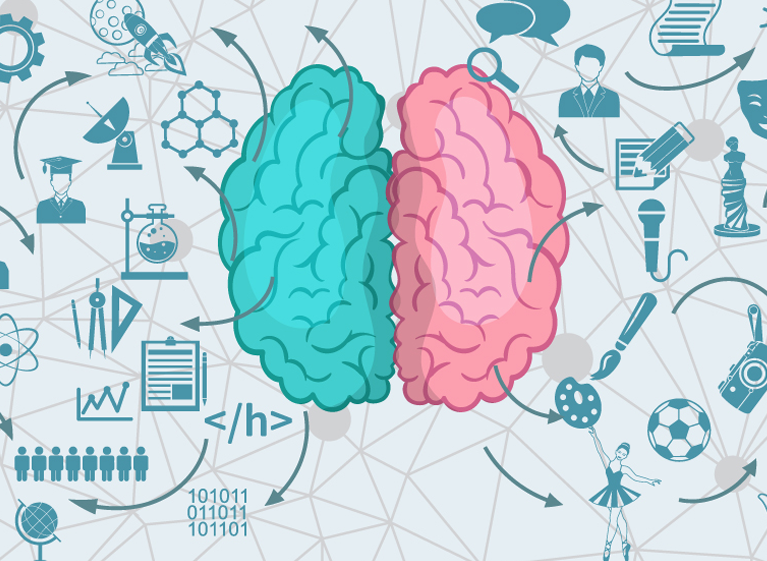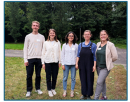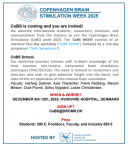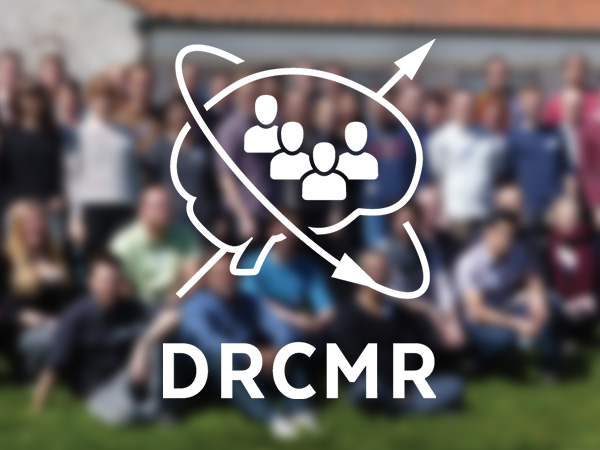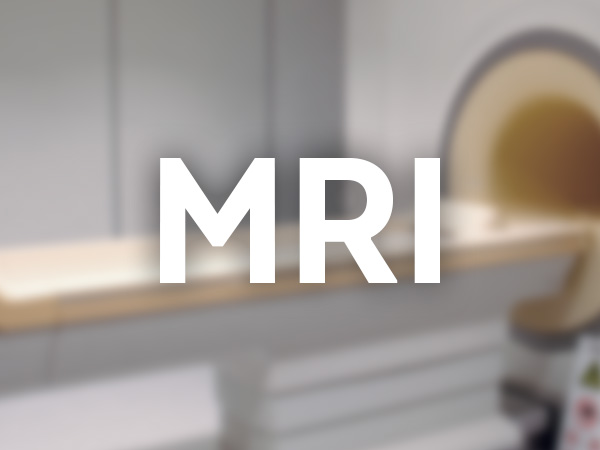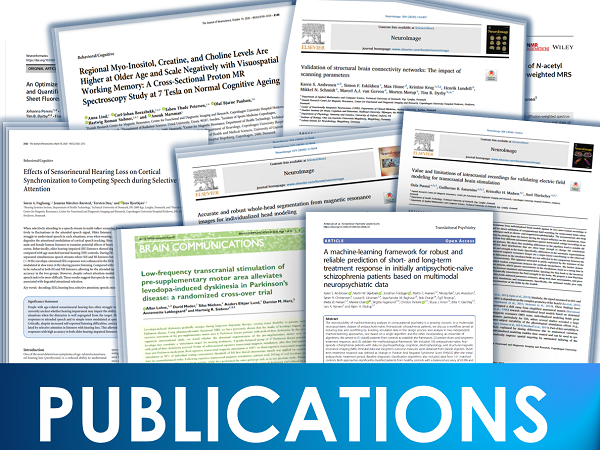Latest News
-
Copenhagen Brain Stimulation Week 2025
What are you plans for December? Surely, it must include…
Latest News
Workshop on Diffusion weighted MRI
Time: Monday March 16, 14:30 – 17:00
Location: Auditorium 3+4 placed at the ground floor near the main entrance at Hvidovre Hospital
Homepage: www.drcmr.dk
Attendance is free of charge
Registration, please send a mail with name to timd (at) drcmr.dk
We hereby invite everybody who has an interest - or is just curious - to join this workshop at the Danish Research Centre for Magnetic Resonance (DRCMR). The workshop will cover cutting-edge methods within the field of diffusion weighted MRI.
Diffusion weighted imaging (DWI) is a technique that measures the restricted diffusion of water molecules within brain tissue. Although measurements are obtained at the macroscopic level (cubic millimetre range), DWI provides information about the microstructure of the tissue and enables the visualization of fibre tracts.
The program covers a wide range of topics. Martin Vestergaard Hansen (DRCMR) will demonstrate how diffusion MRI can be used to study brain maturation in children. Henrik Lundell (DRCMR) will show how diffusion tensor imaging of post mortem tissue can provide highly detailed maps of spinal cord connectivity. Geoff Parker (UK) will present recent developments of tractography methods to visualise anatomical connectivity in the brain. The other presentations (Jimmy Lätt & Markus Nilsson, SE; Daniel Alexander, UK; Penny Hubbard, UK) will focus on the difficulties related to diffusion weighted MRI - in particular how diffusion parameters need to be finely tuned - in order to produce measures on the microstructure, relating to fibre density and axonal diameter.
Best regards,
Tim B. Dyrby
Workshop program
Auditorium 3+4 placed at the ground floor near the main entrance at Hvidovre Hospital
Monday March 16, 14:30 – 17:00
14:30 - 14:45 Diffusion tensor imaging of age-related development of cognitive functions in children using Tract-Based Spatial Statistics (TBSS)
By Martin Vestergaard Hansen, DRCMR, DK
14:50 - 15:05 Mapping spinal cord networks post mortem using DWI
By Henrik Lundell, DRCMR, DK
15:10 - 15:30 Recent tractography methods developments
By Geoff Parker, ISBE, UK
15:35 - 15:50 Investigating tissue microstructure using diffusion MRI: The role of high b-values and a varied diffusion time
By Jimmy Lätt & Markus Nilsson, Lund University, SE
15:55 - 16:15 Microstructure imaging with diffusion MRI
By Daniel Alexander, UCL, UK
16:20 - 16:40 Measuring microstructure in the human brain (and knowing you
are right!)
By Penny Hubbard, ISBE, UK
16:40 - 17:00 Open discussions
Note: The course plan here was updated March 8, 2009.
Course title: Magnetic Resonance Imaging Techniques and Analysis
The course will cover introductory MRI acquisition and image processing methods. Analysis of functional imaging data will be covered in detail. The first half of the course is mainly lectures on MR-basics. It also includes data-acquisition for the remaining part of the course that is focused on hands-on data analysis.
The course starts at a level requiring little or no MR experience. A technical background is not required. The target audience is employees and students at the MR department but the course is open and free for external participants.
The course is given Wednesdays 14:00-16:00 in the conference room of the MR-department at Hvidovre Hospital (dept. 340). No pre-registration is necessary. DRCMR employees, students, new-comers and co-workers are given priority if we (against expectations) have to limit the number of participants due to space limitations after the first lecture.
Literature and software: Course notes and relevant articles are provided during the course. Before the first lecture, it is recommended to install the software freely available at http://www.drcmr.dk/bloch as this will play an important role in the acquisition part of the course (access to the software is not needed during lectures). The same applies to the SPM software available at http://www.fil.ion.ucl.ac.uk/spm/ which will be used during the analysis part. The latter software package requires a working installation of Matlab as described on the SPM home page.
Credit: The course has a workload corresponding to 2-4 ECTS points (2 is 1/15 semester workload) but you do not automatically get credit for the course in any educational institution. You may apply for credit at your school, but be aware that no general evaluation is planned, which may be required for a credit bearing course. This can possibly be arranged on an individual basis upon request, and is required for the organizers to recommend 4 ECTS.
Language: The course is given in English.
Lecturers: The acquisition part is coordinated by Lars G. Hanson, and the analysis part by Arnold Skimminge. Lectures are by the organizers Lise Vejby Søgaard and Kristoffer H. Madsen.
The preliminary program is below.
February 11th, MRI acquisition, part 1:
* Section 1-7 of notes at http://www.drcmr.dk/Intro.pdf (in Danish) are discussed (in English).
* Protons, spin, net magnetization, precession, radio waves, resonance, relaxation, rotating and stationary frames of reference, T1 and T2.
February 18th, MRI analysis, part 1: Data acquisition for later analysis section of the course.
* SPM/FSL/MRIcron/FreeSurfer installation, SPM requires a working MATLAB installation which we cannot provide.
February 25th, MRI acquisition, part 2:
* Relaxation time weighting. Dephasing, refocusing, T2*, spin echoes, and sequences.
March 4th, MRI acquisition, part 3:
* Earlier subjects continued. Contrast overview, saturation and inversion.
March 11th, MRI acquisition, part 4:
* Gradients, image-formation and k-space. Echo time revisited.
March 18th, MRI acquisition, part 5:
* Flow- and difffusion-weighting, field strength issues, coils and safety.
March 25th, MRI analysis, part 2: Preprocessing in SPM5
* Setup pipeline for preprocessing of acquired data.
April 1st: MRI acquisition, part 6:
* Sequence elements, k-space trajectories, artifacts (distortions, ghosting and aliasing), noise and mage quality quantification.
April 8th: Cancellation due to Easter.
April 15th: MRI analysis, part 3:
* Introduction to fMRI statistics
* Setup analysis in SPM
April 22nd: Cancelled due to ISMRM
April 29th: MRI analysis, part 4:
* Introduction to second level statistics
* Setup analysis for second level in SPM
May 6th:
* To be announced. Open for suggestions.




